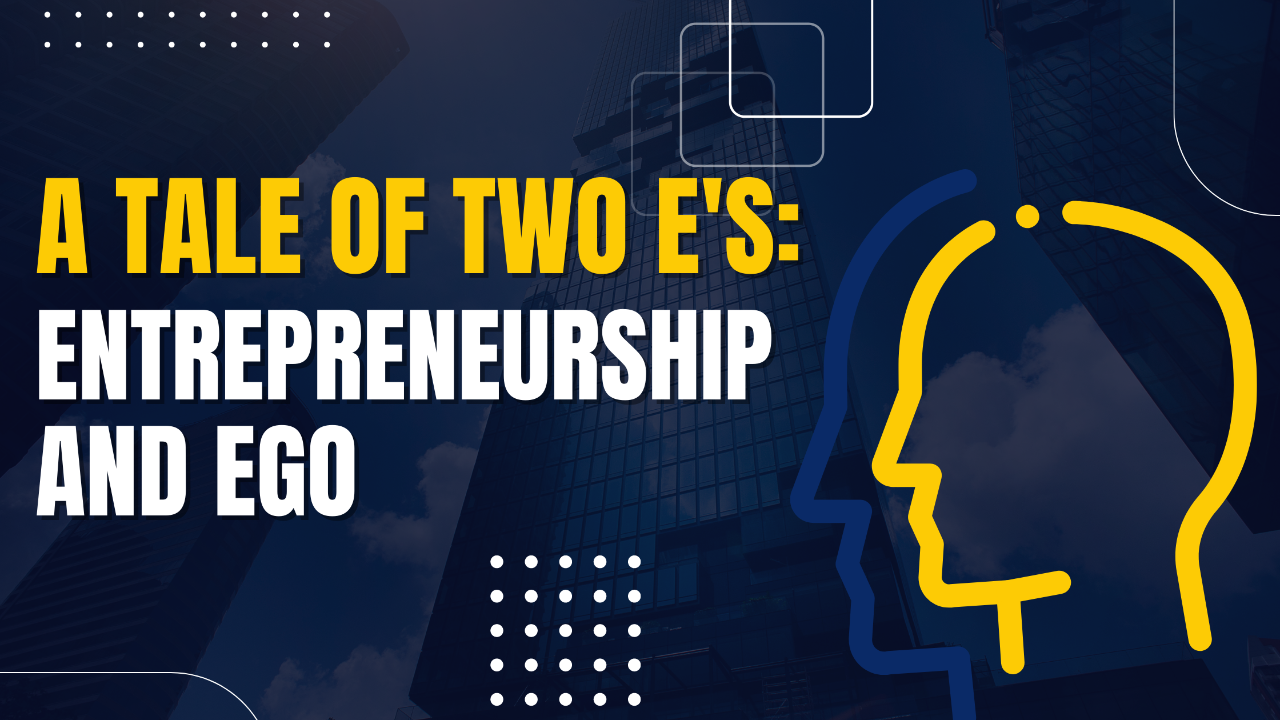A Tale of Two E's: Entrepreneurship and Ego

Entrepreneurs must have an ego. As at the bar during happy hour, everything in moderation, kids!
There are tons of reasons companies (big and small) fail, but it often comes down to one thing: hubris. Their leaders lack humility. Oddly, this lack of humility in the pursuit of largesse keeps them from realizing just what an enormous problem that is. It keeps them in denial of their own limitations.
There is no better example of this folly than a successful company deciding to build a new home for their operations - only to have their businesses collapse soon after that under the weight of excessive costs and overhead.
These case studies are not here because we like lists. They're offered to you because the good ones learn from their mistakes. The great ones learn from the mistakes of others. Be great.
At the height of print media and ignoring the heavy footsteps of the internet, The New York Times Company built a 52-floor monolith as the business' client base was being taken away from it. Two years after the company moved in, it leveraged the building as collateral to get cash to keep from going under. This was mistake number one. As sales continued their decline, the Times sold part of its stake in the building for $225M in a lease-buyback arrangement with W.P. Carey. Not bad enough? It then sold its original structure for $175M to Tishman Speyer. Three years later, while the Times was still in the building, Tishman sold it to a new buyer for $525M. Now that was news fit to print!
The Times isn't the only media company that wanted to make a statement with their H.Q. largesse in New York. Others, like Conde Nast and Hearst, have grand, decadent
monuments that look silly in the age of cost-cutting and secular business problems. These were once two of the most glamorous, powerful publishing businesses, but as modernity grinds away at them, they're becoming less relevant. "The Gilded Age of Conde Nast Was Over."
Tech companies have an embarrassing track record in this department, as well. Fueled by the dot-com boom, they thought the good times would be infinite, and the space for employees would have to be equally large. Wrong.
Take Inktomi, for instance. Once a dot-com era star, it quickly burned up. Unfortunately, it flamed out right around the time it decided it needed to build a new headquarters, laying off employees. The leases put it on the hook for hundreds of millions of dollars, which helped take the company down.
Even financial titans can get hit. Here is a tale of woe from the financial crisis of 2008. Bear Stearns opened its building in 2002 after paying at least $280M to build it. Things were shiny and pretty for a couple of years until the shine dulled. Bear was sold to JP Morgan for $2/share, valuing the company at $236M. Meanwhile, the building was being valued at $1.4B (that's a "B") by JP Morgan and the Fed. Eventually, JP Morgan raised its bid to $10, valuing the company at around $1.2 billion.
Intel got lucky. It pulled the plug on its massive construction projects worldwide just as
it saw it was unfeasible and indefensible to shareholders. Intel dodged a bullet, and it's still around today. Limping but alive and well. Coincidence? Maybe, maybe not.
The AOL Time Warner Center is the crown jewel of hubristic entrepreneurial foolishness. Known as the Time Warner center today. When construction got underway in 2000, Time Warner and AOL were merging and preparing for world domination. Before the building was completed, the company was already on its last legs.
Hubris and arrogance are just one step ahead of loss of integrity. If you think you're better than the next guy, you tend to believe the rules don't apply to you. Thus, loss of integrity.
If it can happen to these behemoths, it can happen to us. Heed this warning. We like most of you. It's not the curse of the new H.Q.s. It's the natural result of feckless hubris. Focus on your core business. Who are you to want that corner office? After all, didn't teachers put us in the corner when we did something wrong. Or so I've heard.
Stay humble.



